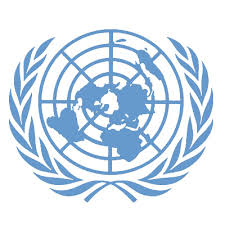Posted on Friday 31 July 2009
This morning, Politico reported that Democratic members of Congress are increasingly being harassed by “angry, sign-carrying mobs and disruptive behavior” at local town halls. For example, in one incident, right-wing protesters surrounded Rep. Tim Bishop (D-NY) and forced police officers to have to escort him to his car for safety.
This growing phenomenon is often marked by violence and absurdity. Recently, right-wing demonstrators hung Rep. Frank Kratovil (D-MD) in effigy outside of his office. Missing from the reporting of these stories is the fact that much of these protests are coordinated by public relations firms and lobbyists who have a stake in opposing President Obama’s reforms.
The lobbyist-run groups Americans for Prosperity and FreedomWorks, which orchestrated the anti-Obama tea parties earlier this year, are now pursuing an aggressive strategy to create an image of mass public opposition to health care and clean energy reform. A leaked memo from Bob MacGuffie, a volunteer with the FreedomWorks website Tea Party Patriots, details how members should be infiltrating town halls and harassing Democratic members of Congress:
— Artificially Inflate Your Numbers: “Spread out in the hall and try to be in the front half. The objective is to put the Rep on the defensive with your questions and follow-up. The Rep should be made to feel that a majority, and if not, a significant portion of at least the audience, opposes the socialist agenda of Washington.”— Be Disruptive Early And Often: “You need to rock-the-boat early in the Rep’s presentation, Watch for an opportunity to yell out and challenge the Rep’s statements early.”— Try To “Rattle Him,” Not Have An Intelligent Debate: “The goal is to rattle him, get him off his prepared script and agenda. If he says something outrageous, stand up and shout out and sit right back down. Look for these opportunities before he even takes questions.”The memo above also resembles the talking points being distributed by FreedomWorks for pushing an anti-health reform assault all summer. Patients United, a front group maintained by Americans for Prosperity, is currently busing people all over the country for more protests against Democratic members. Rep. Pete Sessions [R-TX], chairman of the NRCC, has endorsed the strategy, telling the Politico the days of civil town halls are now “over.”
Meanwhile, AHIP, the trade group and lobbying juggernaut representing the health insurance industry is sending staffers to monitor town halls and other right-wing front groups are stepping up their ad campaign to smear reform efforts. The strategy for defeating reform — recently outlined by an influential lobbyist to the Hill newspaper as “delay” then “kill” — is becoming apparent. By delaying a vote until after the August recess, lobbyists are now seizing upon recess town halls as opportunities to ambush lawmakers and fool them into believing there is wide opposition to reform.
Lobby Firm Sent Forged Climate Change Letter To Congressman
TPMmuckraker
By Zachary Roth
July 31, 2009, 12:24PMOK, this is a good one…
Via The American Prospect: Freshman Democratic congressman Tom Perriello — whose Virginia district leans Republican — faced a tough decision last month over whether to support the climate change bill. As he was weighing the issue, he got a letter from a non-profit group in his district that focuses on issues of importance to Hispanics. The letter urged Perriello to oppose the bill because it could raise low-income members’ utility bills. "Many of our members are on tight budgets and the sizes of their monthly utility bills are important expense items," it read in part.
But, reports the Charlottesville Daily Progress, the letter was a fake:
"They stole our name. They stole our logo. They created a position title and made up the name of someone to fill it. They forged a letter and sent it to our congressman without our authorization," said Tim Freilich, who sits on the executive committee of Creciendo Juntos, a nonprofit network that tackles issues related to Charlottesville’s Hispanic community. "It’s this type of activity that undermines Americans’ faith in democracy." The faked letter from Creciendo Juntos was signed by "Marisse K. Acevado, Asst Member Coordinator," an identity and position at Creciendo Juntos that do not exist.The letter — subsequently obtained by TPMmuckraker – had actually been sent by someone at the D.C. lobbying firm Bonner and Associates – a pioneer in "strategic grassroots/grasstops" lobbying whose clients have included Citicorp, Aetna, PhRMA, Dow Chemical, AT&T, and General Motors, among others.
And Perriello staffers soon dug out five other forged letters – also obtained by TPMmuckraker – urging the congressman to oppose the bill – all purportedly from the local branch of the NAACP, whose president says he’s "appalled" at the scam.
The Wonk Room has learned that the National Republican Congressional Committee [NRCC] is engaged in a misleading campaign to trick physicians into opposing health care reform. The NRCC has been placing calls and sending “hand-written” faxes to physicians across the country to ostensibly recognize physicians for their “invaluable experience” and ask recipients to call a toll-free number and approve a press release “to honor the achievements of you and other concerned physicians like you.” The missive invites doctors to “represent” their state “as a consultant on Rep. Tom Price’s [R-GA] ‘Physicians’ Council for Responsible Reform,’” but a call to the “Council” suggests that the NRCC’s real goal is to scare physicians and add legitimacy to Republican efforts to stall reform. Download a copy of the letter HERE.
Rather than seeking “critical input” or “guidance” from doctors “who are respected by their peers”, the “Council” warns doctors about the “very real threat of Washington interfering even more with doctor’s efforts to provide the best possible care for their patients” and explains that the physicians on the Council have already agreed to “a free market type thing.”
And finally for the [not altogether funny] comic relief:


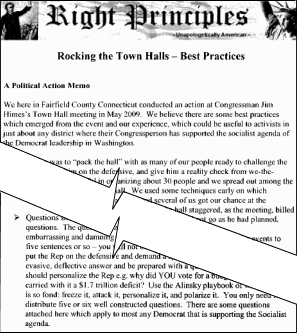
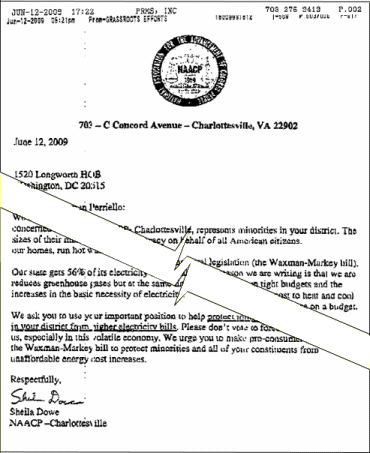

 WASHINGTON — A senior American military adviser in Baghdad has concluded in an unusually blunt memo that Iraqi forces suffer from entrenched deficiencies but are now able to protect the Iraqi government, and that it is time “for the U.S. to declare victory and go home.” The memo offers a look at tensions that emerged between Iraqi and American military officers at a sensitive moment when American combat troops met a June 30 deadline to withdraw from Iraq’s cities, the first step toward an advisory role. The Iraqi government’s forceful moves to assert authority have concerned some American officers, though senior American officials insisted that cooperation had improved.
WASHINGTON — A senior American military adviser in Baghdad has concluded in an unusually blunt memo that Iraqi forces suffer from entrenched deficiencies but are now able to protect the Iraqi government, and that it is time “for the U.S. to declare victory and go home.” The memo offers a look at tensions that emerged between Iraqi and American military officers at a sensitive moment when American combat troops met a June 30 deadline to withdraw from Iraq’s cities, the first step toward an advisory role. The Iraqi government’s forceful moves to assert authority have concerned some American officers, though senior American officials insisted that cooperation had improved.  Prepared by Col. Timothy R. Reese, an adviser to the Iraqi military’s Baghdad command, the memorandum details Iraqi military weaknesses in scathing language, including corruption, poor management and the inability to resist Shiite political pressure. Extending the American military presence beyond August 2010, he argues, will do little to improve the Iraqis’ military performance while fueling growing resentment of Americans. “As the old saying goes, ‘Guests, like fish, begin to smell after three days,’ ” Colonel Reese wrote. “Since the signing of the 2009 Security Agreement, we are guests in Iraq, and after six years in Iraq, we now smell bad to the Iraqi nose”…
Prepared by Col. Timothy R. Reese, an adviser to the Iraqi military’s Baghdad command, the memorandum details Iraqi military weaknesses in scathing language, including corruption, poor management and the inability to resist Shiite political pressure. Extending the American military presence beyond August 2010, he argues, will do little to improve the Iraqis’ military performance while fueling growing resentment of Americans. “As the old saying goes, ‘Guests, like fish, begin to smell after three days,’ ” Colonel Reese wrote. “Since the signing of the 2009 Security Agreement, we are guests in Iraq, and after six years in Iraq, we now smell bad to the Iraqi nose”… We invaded Iraq to keep from being destroyed by their weapons of mass destruction and to break their ties with the terrorists that attacked our country. Since they didn’t have any weapons of mass destruction and were not involved with the terrorists, our objective was met before we went. As we launched our misbegotten invasion, we renamed it Operation Iraqi Freedom – liberating Iraq from Saddam Hussein. That was accomplished in short order. We disbanded Iraq’s army, then we complained that Iraq’s army wasn’t up to snuff [brilliant]. Then we fought the Insurgents – either Iraqis who wanted us out, or foreign Jihadists flocking to Iraq to kill them some Americans. Time to call it what it is – a F·I·A·S·C·O. One way to do that, as Reese says, is to "declare victory and go home."
We invaded Iraq to keep from being destroyed by their weapons of mass destruction and to break their ties with the terrorists that attacked our country. Since they didn’t have any weapons of mass destruction and were not involved with the terrorists, our objective was met before we went. As we launched our misbegotten invasion, we renamed it Operation Iraqi Freedom – liberating Iraq from Saddam Hussein. That was accomplished in short order. We disbanded Iraq’s army, then we complained that Iraq’s army wasn’t up to snuff [brilliant]. Then we fought the Insurgents – either Iraqis who wanted us out, or foreign Jihadists flocking to Iraq to kill them some Americans. Time to call it what it is – a F·I·A·S·C·O. One way to do that, as Reese says, is to "declare victory and go home."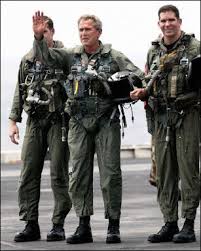 Now we are "guests" in Iraq, but there’s some reticence to leave. The only reason I can think of for us to be there is the inertia of the Bush/Cheney silliness that took us there in the first place. Colonel Reese says, "Our hand on the back of the seat is holding them back and causing resentment. We need to let go before we both tumble to the ground.”
Now we are "guests" in Iraq, but there’s some reticence to leave. The only reason I can think of for us to be there is the inertia of the Bush/Cheney silliness that took us there in the first place. Colonel Reese says, "Our hand on the back of the seat is holding them back and causing resentment. We need to let go before we both tumble to the ground.”

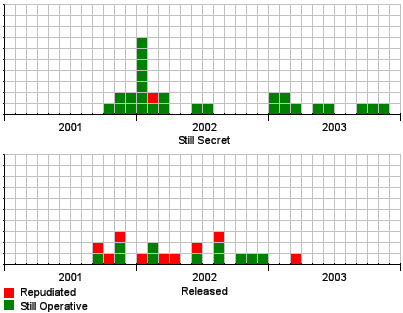
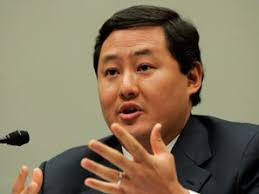 We know about the OLC because of the
We know about the OLC because of the 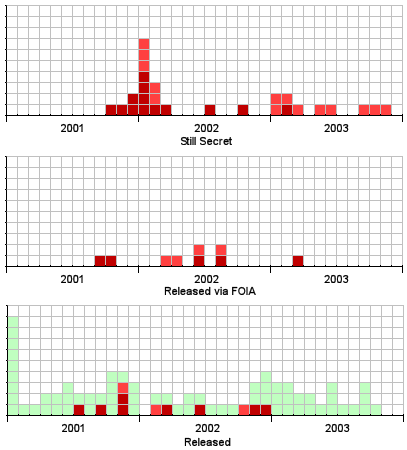

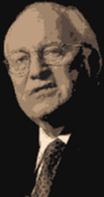 When I look back on all of this, I see one force threaded through the story from the start – Dick Cheney. In his Congressional career, he was an effective power broker, but not much of a legislator – voting the Conservative "party line" exclusively. He wrote the dissenting opinion in the Iran-Contra Hearings defending the Executive’s right to do anything. And he was in cahoots with the oil lobby. After the Gulf War, his Defense Department produced the Defense Policy Guidance that introduced the "Wolfowitz Doctrine" [preemption, unilaterality, superpower strength, and active promotion of democracy]. During the Clinton years, he headed a huge oil exploration company, and made speeches pointing to the oil reserves in the middle east and suggested that commercial interests become part of foreign policy. He was a founder of the PNAC, whose first act was a letter to Clinton encouraging "regime change" in Iraq. In their Military review, his Defense Guidance was exhumed. When tasked by George Bush to find him a running mate, he picked himself. And his first act as VP was to assemble a secret Energy Task Force that focused of oil exploration in Iraq.
When I look back on all of this, I see one force threaded through the story from the start – Dick Cheney. In his Congressional career, he was an effective power broker, but not much of a legislator – voting the Conservative "party line" exclusively. He wrote the dissenting opinion in the Iran-Contra Hearings defending the Executive’s right to do anything. And he was in cahoots with the oil lobby. After the Gulf War, his Defense Department produced the Defense Policy Guidance that introduced the "Wolfowitz Doctrine" [preemption, unilaterality, superpower strength, and active promotion of democracy]. During the Clinton years, he headed a huge oil exploration company, and made speeches pointing to the oil reserves in the middle east and suggested that commercial interests become part of foreign policy. He was a founder of the PNAC, whose first act was a letter to Clinton encouraging "regime change" in Iraq. In their Military review, his Defense Guidance was exhumed. When tasked by George Bush to find him a running mate, he picked himself. And his first act as VP was to assemble a secret Energy Task Force that focused of oil exploration in Iraq.

